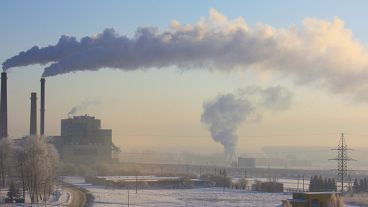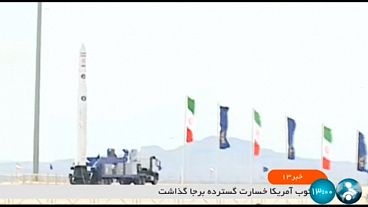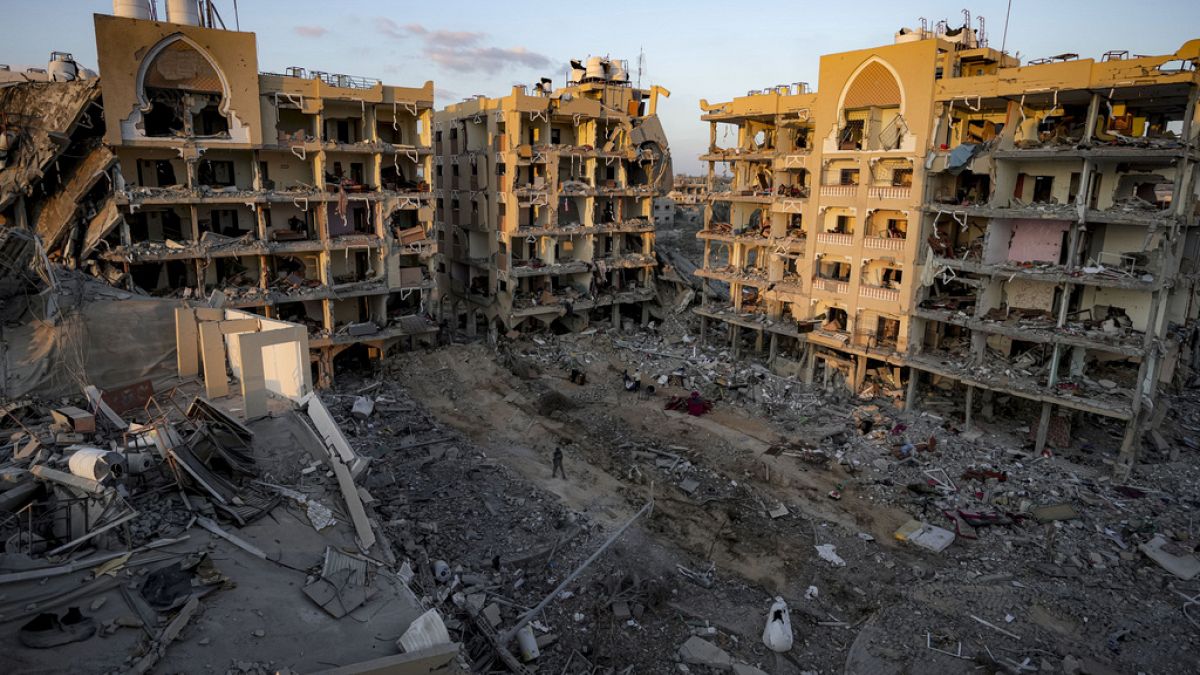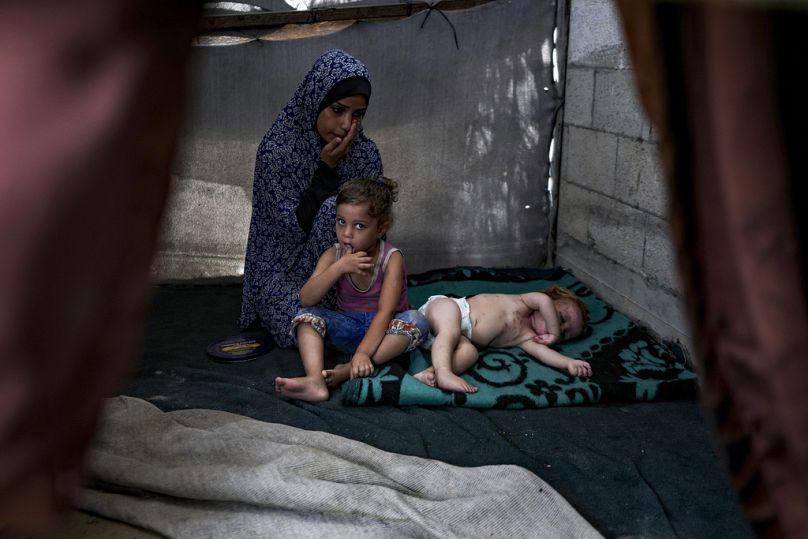With no Gaza ceasefire deal yet agreed, clashes between Israel and Hezbollah have raised the risk of all-out war in the Middle East.
A top UN diplomat has warned of the risk that a major international war could break out in the Middle East.
Jean-Pierre Lacroix, who serves as UN Under-Secretary-General for Peace Operations, is particularly concerned about Hezbollah's attacks on Israel along the UN demarcated "Blue Line" in southern Lebanon and Israel's airstrikes on Hezbollah weapons sites and militants.
Lacroix spoke to Euronews about the need for de-escalation as he headed for the EU Defence Ministers Council in Brussels.
"The risk of escalation remains very, very serious," he explained. "We're talking about regional escalation because this situation in Gaza, and several other situations in the Middle East, are all very interconnected."
Since Israel launched its invasion of the Gaza Strip following the deadly attack by Hamas on 7 October, violence has flared and tensions escalated in several areas of concern.
Iranian-backed militias in Yemen, Iraq and Syria have ramped up their attacks, which they say are responses to Israeli operations in the Gaza Strip and other Palestinian territories.
"We have seen episodes of retaliation that contribute to maintaining a high risk of a regional escalation beyond what we are already seeing in Gaza," said Lacroix. "So, obviously, the ongoing efforts at peace talks in Gaza are extremely important."
The Iran factor
One of the most tense moments came on 1 April this year, when Israeli air strikes killed Iranian officials who were meeting in a diplomatic building in the Syrian capital, Damascus.
Two weeks later, Iran launched its first direct attack on Israeli territory in the form of a barrage of 300 missiles and drones — almost all of which were repelled by Israeli air defence systems, some of which are US-supplied.
There have been other incidents outside Israel and Gaza involving civilian casualties. But the situation escalated when Ismail Haniyeh, a senior Hamas political official, was killed in Tehran on 31 July, where he was due to attend the inauguration of Iran's new president, Masoud Pezeshkian.
The Israeli government has neither confirmed nor denied its responsibility for the explosion that killed the leader in his hotel room, but the operation is widely thought to have been carried out by the Israeli secret services.
The following day, the US reinforced its military deployment in the Middle East, as Iran promised to retaliate against Israel. Almost a month later, the threat still hasn't materialised, but the UN is worried.
"Iran is obviously an important actor in the region, which is involved in different ways in the discussions that are taking place to try to achieve peace. After what happened in Tehran, there is speculation in terms of a possible reaction from Iran, but I'm not going to contribute to that," said the UN Under-Secretary-General.
What future for Gaza?
Several members of the UN Security Council are talking about the possibility of creating a future peacekeeping mission in Gaza.
Lacroix says such talk is "premature", as any such force would require the agreement of the parties directly and indirectly involved in the conflict, as well as the unanimous vote of the five permanent members of the UN Security Council.
He also identified another important condition: "Any third-party presence — and this certainly applies to UN peacekeeping missions — must also be accepted by the local communities, by the local parties. They have to consider that the mission would make a positive difference to their lives."
As requested by the EU and other powers, Israel has just agreed to three pauses in the fighting in Gaza, starting next week, to allow for a polio vaccination campaign for around 640,000 children.
But negotiations for a long-term ceasefire agreement, which has been proposed by the US and is being negotiated with the help of Qatar and Egypt, remain deadlocked.
Lacroix told Euronews that the vaccination pauses represent an "important humanitarian effort, in the very short term", but insisted that only a total cessation of hostilities will reduce the risk of the conflict spreading in the region — which is why the European Union must keep applying diplomatic pressure.
"The EU and several of its member states contribute politically and with troops to peacekeeping operations in the Middle East," he pointed out.
"When it comes to peace missions, member states should provide more political support, in addition to sending soldiers. Peace missions do not have military objectives, but political ones."













